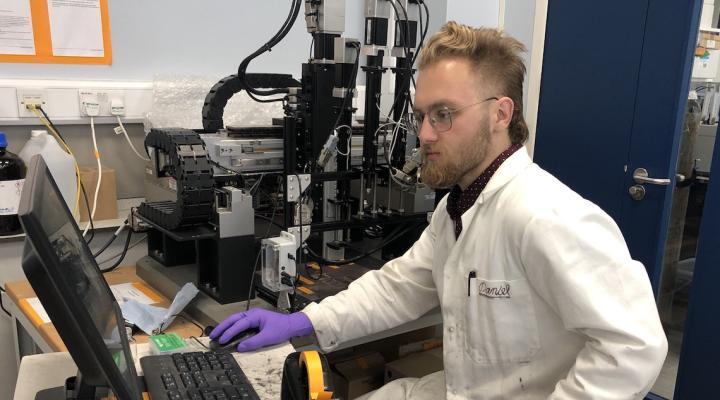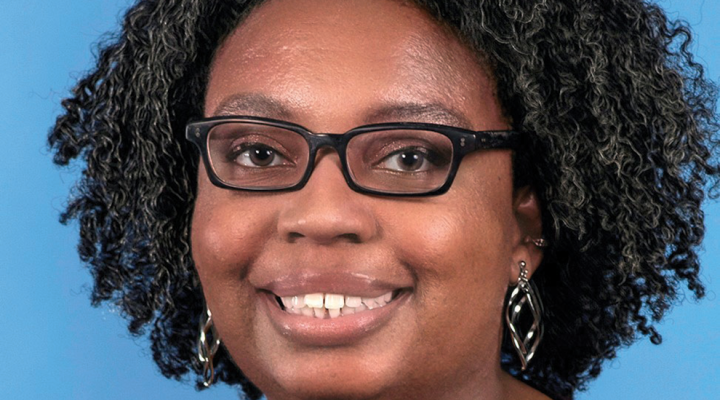Steven Jackson grew up in a remote steel town in Northern Ontario--a town full of teachers, doctors, and steelworkers. “I didn’t grow up around academics,” says Jackson. “I don't think I had any clear idea of what universities were or what went on there.” So it never entered his mind that he would end up where he is today, a professor in the Information Sciences Department at Cornell, studying technology, policy, collaboration, and international development. Jackson arrived here via a unique path, one he continues to walk on.
After graduating from Concordia University in Montreal with a degree in English and Writing, Jackson spent a year working for an NGO in Indonesia working on local development projects and picking up the language; spent three summers planting trees in the mountains of Northwest British Columbia for the Canadian forestry industry (“You’re paid by the tree,” Jackson says. “People’s bodies were just destroyed--you work nonstop for two months--university life is gentle in comparison”); then went to Seoul to teach English and study East Asian history and political economy. The stark political and economic differences between the West and East fascinated him, driving him towards a Masters degree in Political Economy at Carleton University in Ottawa, and eventually a Ph.D. in Communication and Science Studies at the University of California, San Diego, where he examined the effects of computer simulation models as a relatively new technology for producing knowledge within the highly contested water politics of California.
Jackson continues to study the effects of new technology on public policy and scientific collaboration at Cornell. “The NSF has poured huge amounts of money into new computational infrastructure that’s intended to jumpstart the process of science in general,” he says. “But, when you throw a shiny new toy into a field that’s been doing things its own way for years…what happens?”
Jackson has asked that question of ecology, a field that’s still largely built around “people who like being out in nature, developing a relationship with their field site,” he says. This world is changing due to the advent of the NSF’s National Ecological Observatory Network, a multi-million dollar project aimed at producing long-term and standardized data in ecology. “There’s a certain kind of ambivalence from people who grow up to a small investigator tradition,” says Jackson. “It goes against why they went into the field.” Jackson also investigates the effects of technology on amateur organizations; for example, the growing ‘fixer’ and ‘maker’ movements made up of hobbyists that work hands-on with technology. “People are taking in the pleasure of material engagement,” says Jackson. “There’s a pleasure in repair, a puzzle-like quality.”
In addition, Jackson has continued to build on the interests in globalization and international development that first led him back to graduate school. In a past faculty appointment at the University of Michigan he has taught graduate courses in information technology and global development. His recent work includes programs of research on technology repair, sustainability, social change and public sector reform in locations ranging from Namibia and Bangladesh to Thailand and Indonesia. He believes such locations provide particularly interesting challenges for information science and human-computer interaction (HCI) research going forward “We tend to imagine the future of computing as being defined in places like Silicon Valley. But the way in which computing meets the world is in fact a lot more complicated than that, and has as much to do with rickshaw pullers in Dhaka and repair technicians in northeastern Namibia as it does with engineers in Silicon Valley.”
While most of Jackson’s work straddles the line between technology, policy, and critical social science traditions, he’s also begun to branch out; he recently helped create an art installation inspired by his research on technology. “It started as an anthropological project,” says Jackson. “We were interested in the links between technological failure, innovation, and creativity, and ended up studying a group of artists who use broken and obsolete technologies as central materials and topics in their work.” Intrigued by the results, he ended up joining with graduate student Leo Kang and visual artist Taezoo Park to create “Scale”, an interactive installation “created from the detritus of broken and discarded technologies.” Viewers step on an old bathroom scale, causing the dormant junk pile to come to life--radios buzz, projector reels spin, old television screens glow. The exhibition produces contradictory effects in the viewers, explains Jackson. “For some, the effect is warm and playful, invoking curiosity and surprise (and sometimes nostalgia, for some of the older viewers who recall seeing and using many of the objects in front of them). For others, it’s more threatening, calling attention to the consequences of technological waste or the somewhat alien form of the technologies around us.”
They exhibited the piece in New York City, where it received four blue ribbon awards at the World Maker Faire--a convention for fixer/maker communities. This deviation into the artistic has left an impression on Jackson. “Some of my work is very traditional policy or anthropology-style work, but I do believe there’s space to be more creative and thoughtful in our modes of investigation and expression,” he says. “I can write academic papers on a topic, but not very many people will read those and engage with them. But there are other ways of getting ideas out into the world and engaging more people, and I want to explore that.” He tries to convey the same message about commitment and taking chances to his students. “The world is full of great problems,” he says, “and no one discipline or approach has a lock on the answers. If we do our job well, our students will come up with new and creative ways of approaching the world of technology that none of us could have imagined or anticipated.”




